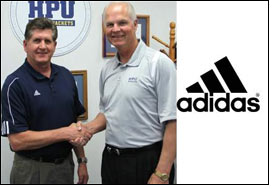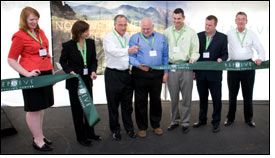 Paweł Lewandowski
Paweł Lewandowski Lina S
Lina S Guiri Uribe
Guiri Uribe Kellen Hofer
Kellen Hofer Mikko Puttonen
Mikko Puttonen
 Gerber Technology, a business unit of Gerber Scientific Inc, announced that Peter Bambridge has been appointed director of Software Solutions, leading the company's product lifecycle management (PLM) customer relationship efforts in the U.K. and northern Europe.
Gerber Technology, a business unit of Gerber Scientific Inc, announced that Peter Bambridge has been appointed director of Software Solutions, leading the company's product lifecycle management (PLM) customer relationship efforts in the U.K. and northern Europe.
For more than two decades, Bambridge has been developing and managing business for software and services companies in the retail and consumer goods manufacturing sector. Most recently he managed Dassault Systemes' PLM business for retail and consumer goods in northern Europe and, for three years prior to that, served as a global industry analyst focused on PLM solutions at Gartner, Inc., the world's leading information technology research and advisory company. Bambridge also managed the European operations of Freeborders, a PLM solutions provider acquired in 2008.
'Peter brings a wealth of industry knowledge and PLM experience to his new role,' said Bill Brewster, president of Gerber's Software Solutions business. 'His focus is always on the customer. He understands that his goal is to assist retail and consumer goods companies improve productivity and profitability throughout the enterprise by helping them implement the appropriate PLM solution for their needs.'
Bambridge has successfully driven business growth for a variety of technology companies focused on retail and consumer goods, such as Oracle, i2 Technologies, Comshare, Intactix and Deloitte Consulting.
Bambridge said, "I am delighted to be joining Gerber Technology at an exciting period in the company's growth. I have been aware for some time that YuniquePLM is the benchmark for ease of use, flexibility, extensibility and scalability. I look forward to helping to build Gerber's business across the U.K. and northern Europe, proving to customers and prospects alike that YuniquePLM is the right choice for their business needs."
NY futures continued to slide, with July dropping 256 points to close at 144.30 cents, while December gave up 289 points to close at 119.19 cents.
The return of some mill buying for nearby shipment allowed the market to catch its breath for a few days, with July trading as high as 155.12 cents on Wednesday. But the recovery proved to be nothing more than a "dead cat bounce", as mills have since returned to the sidelines and the market has resumed its downtrend.
The US export sales report of this morning displayed a familiar picture, as for every current crop bale that was able to find a home there was another one that got cancelled. Last week 59'500 running bales were sold for the current marketing year, while 61'300 running bales got cancelled, resulting in yet another net reduction of 1'800 running bales. On the other hand commitments for the 2011/12 marketing year continued to grow by 76'000 running bales and now amount to nearly 5.8 million statistical bales.
On Wednesday the USDA provided us with their first detailed estimate for the 2011/12 season. For the first time in six years, the world is expected to produce more than it consumes, thereby reversing a trend of sharply declining stocks.
Since the 2006/07 season global stocks have been reduced by nearly 20 million bales to just 42.5 million bales, which equal a little more than 4 months of global mills use. However, since the statistical snapshot is taken on July 31, most inventories will be nearly depleted by the time new crop comes off the field this fall.
The USDA forecasts world production at an all-time high of 124.7 million bales, which would surpass the record from 2006/07 by around 2.9 million bales. Since the US crop is expected to be more or less unchanged at 18.0 million bales, the rest of the world will have to produce a crop that is 10.2 million bales bigger than in the current season. The USDA believes that China will get to 33 million bales (7.185 million tons), while India will grow a record 27 million bales (34.6 million Indian bales). While this is certainly possible, a lot needs to go right in order to get there.
While production is expected to soar, the USDA counts on continued demand destruction to keep global mill use subdued at just 119.5 million bales. Although that amounts to 3 million bales more than in the current season, it is still 4.3 million shy of the record 123.8 million bales that were consumed during the 2006/07-season.
You may recall that in its December 2007 report the USDA projected global mill use to reach as much as 128.27 million bales in the 2007/08 season. Then the financial crisis happened! But has demand really suffered such a blow that it is nearly 9 million bales below the potential of four seasons ago? We seriously doubt it!
Although retail demand has remained stagnant in the US and Europe in recent years, it has been growing by leaps and bounds elsewhere around the globe, especially in China and India. World population alone has grown by 300 million people over the last four years and is expected to cross the 7 billion people mark by the end of this year. We therefore believe that the consumption number may harbor a positive surprise as we head into the coming season.
Global trade is expected to increase from 37.0 to 39.9 million bales, as many importers are trying to bolster their inventories, led by the Chinese Reserve who will want to refill its strategic stock. What caught our eye is that China is expected to import 16.0 million bales (2.5 million bales more than this season), while the US may export just 13.5 million bales (2 million less). The US has already sold 5.8 million bales for next marketing year, of which China has booked just 1.9 million bales.
In other words, unless China becomes a lot more aggressive, it is on track to import only about 4.5 million bales from the US. China would then have to import the remaining 11.5 million bales from origins like India, Central Asia, Brazil and Africa, and thereby take up a large chunk of their exportable surplus, which in turn should keep prices fairly well supported.
Ending stocks are expected to grow by about 5.4 million bales to 47.9 million bales next season. The increase is nicely spread among various origins, with India stocking up 1.2 million bales, China 0.95 million, the US 0.75 million, Pakistan 0.53 million, while all the others add about 2.0 million bales combined.
The market seems to rate the USDA report as bearish, mainly because ending stocks are expected to climb by 13%. However, as explained above, an increase in ending stocks does not necessarily have to depress prices. The fact that imports are projected at nearly 40 million bales due to restocking should help to counterweigh bearish forces. Also, it won't be an easy task to produce a record crop given the weather pattern we have seen so far this spring, while demand may prove to be understated.
So where do we go from here? Two months ago mills were still chasing after a limited amount of offers, but now the tables are turned, as merchants are trying to find mills to sell their remaining inventory to. With current crop prices in decline, mills are only buying what is absolutely necessary right now, which has created an overhang of offers that is keeping the market under pressure.
There will be a point at which mills will have to re-enter the market in greater numbers, be it to fix the remaining 2.25 million bales of on-call sales in July or to cover future needs. However, with July still trading at 25 cents above December, mills may choose to remain in hiding for now. While July may have to trade even lower in order to attract business, we feel that December has been punished enough and represents a decent value at current levels.
 The new fall collection from Motherhood Maternity features contemporary maternity fashions inspired by the color and beauty of the forest and surrounding countryside.
The new fall collection from Motherhood Maternity features contemporary maternity fashions inspired by the color and beauty of the forest and surrounding countryside.
The first delivery explores a range of greens from emerald and dark olive to soft sage, with accents of lime. This collection features details including raw edges, asymmetrical necklines, heavy stitching, and an array of back pocket details. Smudge print tops layer with marled and ribbed textured sweaters on top, while the key bottoms are the skinny boot and flare leg silhouettes.
Like the leaves themselves, Motherhood Maternity's fall collection changes from greens to warmer, burnt colors like bark, copper and rose as the season progresses. Balancing the new neutrals of camel, oatmeal and grey, this color story reflects the look of the English countryside. Blurry florals and no-print prints in rusty hues are strong in peasant blouses, layered with cascade cardigans and paired back to the new flare denim leg shape. Soft knit dressing is another important element here, with the cowl neck sweater atop the maxi length skirt creating a flattering long and lean silhouette.
"Our designers translated the beauty and the enchantment of nature into amazing fashion at amazing prices," said Lisa Hendrickson, Chief Merchandising Officer of Motherhood Maternity.
Dressing over two million new moms-to-be each year, Motherhood Maternity offers an extensive breadth of quality hot fashions at everyday low prices especially created for the young and fun expectant mom. Motherhood Maternity can be found nationwide, in Canada, Puerto Rico, Guam and in all Destination Maternity stores.
 Following the institutional mission in Uzbekistan, organized by ACIMIT (the Association of Italian Textile Machinery Manufacturers), in October 2010 in partnership with the Italian Trade Commission, an Uzbek delegation comprising Government authorities and textile manufacturers recently visited Italy to meet with ACIMIT's top management.
Following the institutional mission in Uzbekistan, organized by ACIMIT (the Association of Italian Textile Machinery Manufacturers), in October 2010 in partnership with the Italian Trade Commission, an Uzbek delegation comprising Government authorities and textile manufacturers recently visited Italy to meet with ACIMIT's top management.
This meeting provided an opportunity to sign a memorandum of understanding and cooperation between ACIMIT and the Uzbek Textile Association. The agreement, which benefits from the approval of the Italian Trade Commission, sets up a framework for cooperation between Italy's textile technology providers and Uzbek textile manufacturers.
"Uzbekistan has a centuries-old tradition in the processing of raw materials," explains Sandro Salmoiraghi, President of ACIMIT, "and it is the world's sixth largest producer of cotton. The country is currently undergoing a strong phase of industrialization, and in recent years its textile industry has begun a profound restructuring process for the transformation of raw materials domestically. Many current projects regard the building of industrial complexes requiring technologically advanced machinery."
Italian textile machinery exports to Uzbekistan for 2010 amounted to an overall value of 2.4 million euros, with sales focused mostly on knitting machinery (66% of the total), other machinery (17%), spinning machinery (9%) and accessories (8%) The attention currently being paid by Italy's textile machinery sector to this market was apparent in the high number of Italian machinery manufacturers eager to meet with the Uzbek delegation over the two-day visit at ACIMIT's headquarters, which led to the signing of various sales agreements.
"ACIMIT aims to support Italian businesses in emerging markets, including those with real potential such as Uzbekistan," stated Salmoiraghi. "In our encounters with our Uzbek counterparts, we have thus sought to present ourselves with structured offers, for instance with the involvement of the engineering firm Endeco, since the demand for turnkey production installations requires that bids be structured through businesses with specific expertise in this field."
 SET Boutique is proud to announce that it has become a Certified B Corporation. The certification strengthens its purpose to promote alternative shopping options that will end modern day slavery and exploitation.
SET Boutique is proud to announce that it has become a Certified B Corporation. The certification strengthens its purpose to promote alternative shopping options that will end modern day slavery and exploitation.
Certified B Corporations (B stands for 'Benefit') meet rigorous standards of social and environmental performance. The performance standards are comprehensive and transparent. They measure a company's impact on its employees, suppliers, community, and the environment.
'Becoming a B Corp proves that fashion can be ethical,' says Lindsay Sullivan, SET Boutique founder. "People around the world can be paid fairly for the clothing we wear and companies can still be profitable. We champion sustainable business, and we view sustainability from many perspectives. Relationships with suppliers should be mutually beneficial with long term goals. The environment of both the company and the supplier should be protected in order to support long term health and growth for their communities. The B Corp assessment takes all these aspects into account and is aligned with SET Boutique's core values."
SET Boutique stands for Support Ethical Trade, and is an e-commerce website specializing in fair trade and eco-friendly clothing, jewelry, bags, and home goods. We scour the globe for high quality, hand crafted products that have dynamic stories behind them. Our sourcing strategy is transparent and our customers have the benefit of learning about each product's producer and materials. SET Boutique also donates to like-minded organizations, and invites the customer to choose the organization when they spend $20.00 or more.
B Lab is a non-profit organization that certifies and supports B Corporations. B Lab drives systemic change through three interrelated initiatives: 1) building a community of Certified B Corporations to make it easier for all of us to tell the difference between 'good companies' and just good marketing; 2) accelerating the growth of the impact investing asset class through use of B Lab's GIIRS impact rating system by institutional investors; and 3) promoting supportive public policies, including creation of a new corporate form and tax, procurement, and investment incentives for sustainable business.
 Multichannel retailing offers customers more than one way of selling, for instance; a web site in addition to the normal retail store. It gives more opportunities to retailers to interact with the customers and promote their products.
Multichannel retailing offers customers more than one way of selling, for instance; a web site in addition to the normal retail store. It gives more opportunities to retailers to interact with the customers and promote their products.
A recent market survey states that retailers, who had an online presence apart from their retail stores, reported increased sales revenue, with 52% of their sales done online. Similarly, retailers, who had only online sales without a retail store network, gained only 31% of internet sales. This clearly indicates that for more successful retailing, a retailer needs both physical and online presence.
Alan Morris, Managing Director & Co-Founder, Retail Assist Ltd in an exclusive interaction with Fibre2Fashion asserts by saying, "Multichannel retailers can have a more loyal and repeat purchase customer base, as consumers are able to access the retailer via various channels. With this evidence of increased revenue, it is no wonder that retailers are putting effort into developing and integrating numerous channels."
He further added, "It could be argued that the holy grail of multichannel retail is when prices are consistent across every channel; even for the likes of delivery."
When asked about the practical feasibility of multichannel process he said, "Many big-box retailers are able to offer merchandise online, and give the consumer the choice between goods being delivered to their home, or to their local store. Methods such as 'click and collect' are becoming more prevalent in today's retail environment, which enable more than one of the retailer's channels to be utilized by the consumer over the course of their purchase."
Finally, when asked about the challenges facing this process, the energetic MD said, "The primary challenge faced by multichannel retailers is maintaining the consistency of service, and delivery across different sales channels. Another challenge facing multichannel retailers is the integration of their different channels."
 Howard Payne Athletics and Adidas have entered into a three-year agreement that will provide exclusive footwear and apparel for all Yellow Jacket teams beginning with the 2011-12 academic year.
Howard Payne Athletics and Adidas have entered into a three-year agreement that will provide exclusive footwear and apparel for all Yellow Jacket teams beginning with the 2011-12 academic year.
"We are excited to announce a partnership between Howard Payne University Athletics and Adidas," said Howard Payne University athletic director Mike Jones. "This is a great opportunity for our department that goes well beyond cost savings because it will put all of our teams in similar apparel and will help us brand our identity as we move forward with our department. It also gives high quality apparel and footwear to each of our teams from one of the world leaders in the industry."
The new agreement ensures that all Howard Payne teams will be outfitted in Adidas uniforms, including practice and travel gear. In addition, officially licensed Howard Payne/Adidas branded products will be available to Yellow Jacket fans in the future. This marks the first time that the Howard Payne Athletics Department has been outfitted by one brand. Howard Payne University is now the only NCAA Division III school in the nation with this type of exclusive agreement with Adidas.
"We are honored to have Howard Payne University Athletics as a part of the Adidas family," said Mike Cloud of Adidas Team Sales. "We look forward to a long and successful partnership of which both parties can be proud."
Mike Cloud is a 1977 graduate of Howard Payne University. He was a member of the Yellow Jacket football team where he was a two-time All-Lone Star Conference selection at safety.
Howard Payne has more than 300 student-athletes competing in the sports of football, women's volleyball, men's and women's soccer, men's and women's basketball, men's and women's cross country, along with baseball, softball and men's and women's tennis.
A member of the highly competitive American Southwest Conference, Howard Payne has won 11 conference titles and five ASC division titles in the past 15 years. In 2008, the HPU women's basketball team won the NCAA Division III women's basketball national championship. Howard Payne also has individual NCAA championship winners in men's track and field and two team NAIA national championships in men's cross country.
Howard Payne joins such universities as Michigan, Notre Dame, UCLA, Tennessee, Indiana, Nebraska, Wisconsin, and SMU among others to be outfitted exclusively in Adidas footwear, uniforms and accessories. Adidas also has exclusive all-league partnership with the NBA and has marketing agreements with the NFL and MLS.
 The British Fashion Council (BFC) announces the winners of the BFC Colleges Council Graduate Preview Day Awards.
The British Fashion Council (BFC) announces the winners of the BFC Colleges Council Graduate Preview Day Awards.
The 'Fashion Monitor Colleges Portfolio Award' in association with the BFC goes to Univeristy of Salford; The 'WGSN Digital Presentation Award' in association with the BFC goes to London College of Fashion; The ‘BFC Fashion Illustration Award' in association with Fashion Monitor goes to De Montfort University.
The 27 exhibiting colleges submitted portfolios to be judged by a panel of industry experts. The judging panel, headed by Chair of the Colleges Council Anne Tyrrell, also included Hannah White, Editor of Fashion Monitor; Lauretta Roberts, Digital Development Director of WGSN; Nick Chalkley, General Merchandise Manager of Harrods and Caroline Burstein, Creative Director of Browns.
"It has been incredibly exciting to see representatives from such influential and important companies such as Harrods, Browns, Vogue Italia, Nicole Farhi, Selfridges, Vogue UK, Warehouse, Marks and Spencer, Max Mara, Maria Luisa, Aquascutum, Love Magazine, Another Magazine and Debenhams attending the preview day. The work on display is second to none and really showcases the amazing talent the UK colleges have to offer"said Anne Tyrrell, Chair of the Colleges Council.
Caroline Rush, Chief Executive of the British Fashion Council, said "Graduate Preview Day is such an important day for both the colleges and the industry. It gives the design teams of our British retailers and designers a chance to see the talent which is entering the industry later in the year".
University of Salford, winner of the Fashion Monitor Colleges Portfolio Award, will win two one year subscriptions for their best students to Fashion Monitor, the industry’s leading provider of contacts, news and events. The judging panel felt their entry demonstrated the best overall presentation of the students’ work. Hannah White, Fashion Monitor Editor, commented, "This is the first year Fashion Monitor is supporting Graduate Preview Day and this award; it is really exciting and encouraging to see students being given such great exposure to the industry. Salford’s portfolio really stood out to the panel, it was detailed, professional and creative".
The WGSN Digital Presentation Award recognises the increasing relevance of integrating fashion and technology. Won by London College of Fashion, the judging panel agreed they demonstrated the best use of a digital medium to reach new audiences and present their collections.
The winner of the BFC Fashion Illustration Award in association with Fashion Monitor, De Montfort Univeristy, will also win two one year subscriptions which will allow the graduating students access to key industry contacts, something which is invaluable for breaking into the industry.
Those highly commended for the Fashion Monitor College Portfolio Award were Edinburgh College of Art and Ravensbourne College of Design and Communication.
The BFC Colleges Council Graduate Preview Day is organised by the British Fashion Council to foster relationships between graduates and industry. The annual event brings together industry insiders from media, recruitment, retail, design, manufacturing, sales, marketing and PR to preview the work of graduating students who will be entering the job market later in the year. This year the Graduate Preview Day was held at The Mayfair Hotel.
 Fast Retailing Co Ltd is targeting a rebound in the second half of fiscal 2011.
Fast Retailing Co Ltd is targeting a rebound in the second half of fiscal 2011.
Tadashi Yanai, Chairman, President and CEO, Fast Retailing Co Ltd:
We are targeting a turnaround in the second half of fiscal 2011, rebounding from unfavorable business results in the first half, to post year-on-year growth in both sales and operating income.
Looking back over the first half of fiscal 2011, UNIQLO Japan sales and income declined as the rapid and excessive expansion of product lines prevented us from focusing on our best-selling core items. Going forward, I believe UNIQLO must strive to perfect its ability to deliver the clothes that customers truly demand and desire by focusing more sharply on developing products, such as our highly functional HEATTECH and Ultra Light Down lines that offer customers a new and higher level of performance.
In addition, the first half of fiscal 2011 was instructive in highlighting the need for enhanced coordination across our vertically integrated business model--spanning the entire clothes-making process from design and planning, production to marketing and retail sale. We are intent on improving in this area in the second half of the business year and convinced that these refinements will translate into growth in sales and income.
Both sales and income have been expanding favorably at UNIQLO International. Dramatic growth in Asian markets is likely to prove the driving force behind future expansion. As such, I feel it is important for us to establish a framework as soon as possible that is capable of supporting the opening of 200 new stores annually in Asia, excluding Japan. Our operational bases in China and South Korea are already sufficiently equipped to support potential large-scale UNIQLO operations similar to that in Japan. We also have some impressive Asian store openings planned for this fall, with flagship stores set to open in Seoul and Taipei, and a megastore with retail space approaching 3,300 square meters due to open in Bangkok.
We are also planning some new and exciting developments in the United States. This fall, we will open our second global flagship store in New York, on Fifth Avenue, and a megastore with retail space in excess of 3,300 square meters on New York's 34th Street, the city's most lucrative shopping district. While the UNIQLO brand is yet to be widely recognized in the United States, our reputation for high-quality, basic casual wear is growing steadily year by year.
We are currently forging an organization that has what it takes to enable us to transform ourselves into a truly global company. In this vein, we need to confirm and refine the role of our Tokyo global headquarters. At the same time, we also need to ensure that new regional headquarters in Shanghai, Singapore, Paris and New York are able to establish unified operations and training institutions that will help them to develop independent business bases in their designated areas.
We are firmly progressing down the road to fulfill our corporate mission to change clothes, change conventional wisdom and change the world as we make great strides in our quest to be a new type of global company from Japan.
 Unifi Inc celebrated the official opening of its REPREVE Recycling Center on Wednesday, May 4th. This $8 million investment will allow the company to expand production capacities of its REPREVE recycled fiber.
Unifi Inc celebrated the official opening of its REPREVE Recycling Center on Wednesday, May 4th. This $8 million investment will allow the company to expand production capacities of its REPREVE recycled fiber.
REPREVE is a family of first quality recycled polyester and nylon fibers that can be used in a wide range of applications, including apparel, automotive, seating and paneling fabrics. Since its introduction in 2006, REPREVE has grown from a single recycled polyester fiber into an entire brand of sustainable products. In the last two years alone, over 247 million post-consumer PET bottles have been recycled into REPREVE. Unifi estimates to recycle over 400 million bottles into REPREVE in 2012 in its REPREVE Recycling Center.
The 50,000 square foot, state-of-the-art REPREVE Recycling Center enables Unifi to recycle post-industrial and post-consumer polyester waste, and in the future, fabrics and garments. The goal of the facility is to expand production capacities and capabilities, improve fiber color and drive volume growth for improved economics.
"The opening of the REPREVE Recycling Center solidifies Unifi's commitment to be the world's leader in the production of sustainable fibers," said Roger Berrier, president and COO of Unifi. "The REPREVE Recycling Center was built using the latest state-of-the-art recycling technology providing us with flexibility to further expand the REPREVE brand in new and innovative directions."
The event took place at the G. Allen Mebane Industrial Complex in Yadkinville, and featured a ribbon cutting ceremony, tours and a program of speakers including Bill Jasper, chairman and CEO; Roger Berrier; John Mowbray, editor and publisher of EcoTextile News; Gail Strickler, Assistant United States Trade Representative for Textiles; and Kim Glas, Deputy Assistant Secretary for Textiles and Apparel and Chairman, CITA.
The Recycling Center has been constructed to convert waste materials into REPREVE and the building itself was built with environmental benefits in mind. Sustainable features include:
• 67 skylights to take advantage of natural sunlight
• Light fixtures controlled by sensor technology to reduce energy use
• Low flow fixtures and motion sensors anticipated to reduce water use by 34%
• Many building materials were bought regionally and comprised of recycled content
• Energy Recovery Kit that captures and re-utilizes heat in the production of REPREVE chip
"The new REPREVE Recycling Center will grow employment in Yadkin County, adding at least 25 new jobs when fully implemented," added Berrier.
Unifi Inc is a diversified producer and processor of multi-filament polyester and nylon textured yarns and related raw materials. The Company adds value to the supply chain and enhances consumer demand for its products through the development and introduction of branded yarns that provide unique performance, comfort and aestheticadvantages.